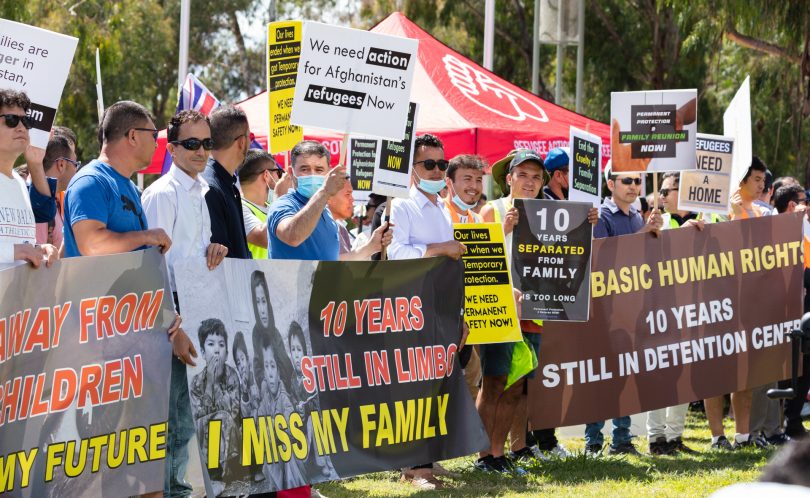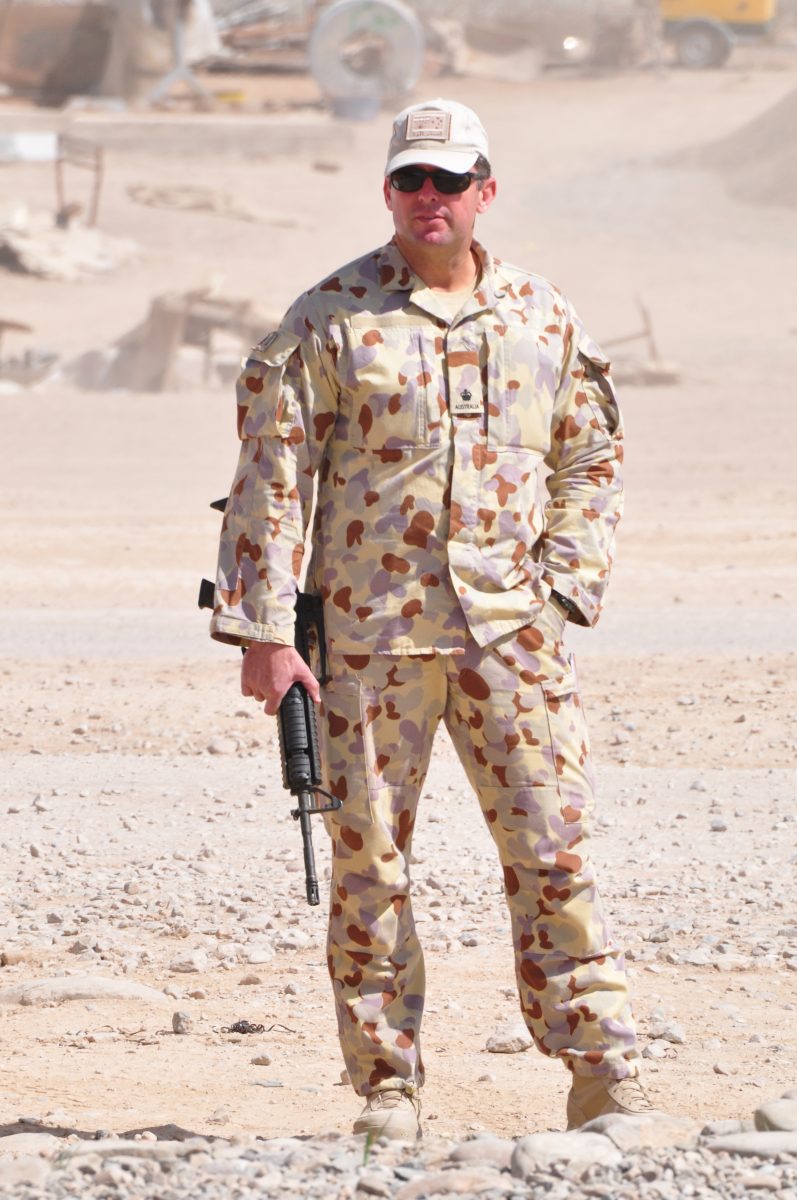
Among the protestors at Parliament House over the weekend were people calling for action for Afghanistan refugees. Photo: Thomas Lucraft.
Six months on from the fall of Kabul, key figures in Australia’s response to the humanitarian crisis in Afghanistan have arrived in Canberra, calling on the Federal Government to increase the proposed intake of 15,000 Afghans over the next four years. They argue this figure fails to respond to the extent of the crisis adequately and is not in line with what the Australian community expects.
The push is in response to Immigration Minister Alex Hawke’s January announcement that 10,000 humanitarian and 5,000 family visas will be set aside for those who have or who are fleeing Afghanistan over the next four years.
A delegation of leaders will meet with politicians, including Mr Hawke, hoping the Government will reset its response to the crisis ahead of the 2022 Federal Budget and increase its intake of Afghan refugees.
Among the delegation is Gap Veteran & Legal Services, a local organisation based in Fyshwick that assists “locally engaged employees”, Afghans who work for Australian government agencies. They help them with becoming certified and applying for visas with the eventual aim of getting out of Afghanistan and into Australia.
Veteran, lawyer and director at GAP Veteran & Legal Services Glenn Kolomeitz said the motion is timely given the six-month anniversary since the fall of Kabul and the growing hardship being felt across Afghanistan.
“Since the fall of Kabul, it obviously became a lot more pressing … there are many Afghans who deserve humanitarian access to Australia,” said Mr Kolomeitz.
“The hardship is increasing in Afghanistan as we’ve seen. With the hunger and the weather at the moment, it’s become a looming humanitarian crisis.
“The urgency has always been there, but just at the moment, it’s a bit aggravated by the circumstances and really the fact that the government has not committed to an appropriate number of humanitarian places,” he said.
GAP Veteran & Legal Services have brought 3500 Afghans to Australia, with many now residing in Canberra, Newcastle and other regional areas. He said the refugees have fit in “remarkably” with their new local communities.
“They’re all very pleased to be here, and that goes without saying, I guess. They really just want to become a part of the community and want to get out there and contribute. The majority are contributing. They’re out there and doing what they can,” said Mr Kolomeitz.
Despite feeling comfortable in Australia, most Afghan refugees carry the burden of knowing their family members remain in Afghanistan and could become a target of the Taliban should they become aware that their family member has fled the country.

Glenn Kolomeitz returned from Afghanistan but has not stopped trying to help the Afghan people. Photo: Supplied.
Mr Kolomeitz vehemently disagrees with those within the community who argue that ‘it’s not our problem’ or ‘we’ve done enough’. He suggested that many Afghanistan veterans feel as if their hard work and sacrifice will go undone, should the Government’s current approach not be improved upon.
“We were there for 20 years. Our contribution in Afghanistan was enormous, and we’re still beloved there, but we pulled out very quickly and left the place to revert back to a pretty tragic situation,” said Mr Kolomeitz.
“A week doesn’t go by where I don’t get Afghanistan veterans and other veterans saying, ‘what are we doing to help?’ or ‘why aren’t we doing more to help?’
“A lot of these guys feel like they made a contribution, we cut and run, and we’ve abandoned these people, and they think we should be doing more to help, not just the people who worked for us but the Afghan people who are at risk more broadly,” he said.
The group calls for 20,000 Afghans to be taken in as additional intake.
More than 162,000 people have signed an online petition calling on Prime Minister Scott Morrison to help at-risk groups and ease the suffering of people from Afghanistan.












